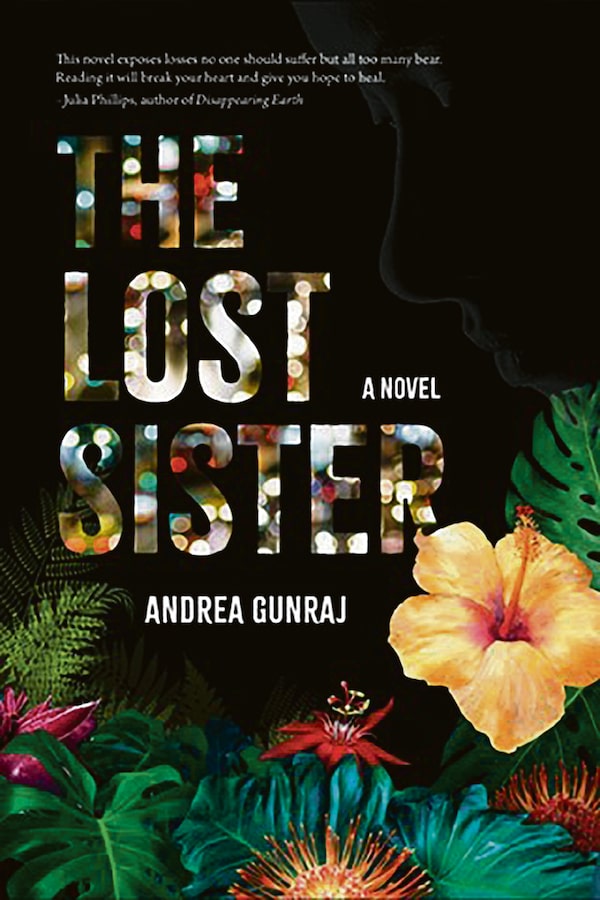
Handout
The Lost Sister, by Andrea Gunraj, Vagrant Press, 320 pages
Alisha is 13. Her sister Diana is the family jewel, 15, brilliant, destined for medical school. The pair live in Toronto’s Jane and Finch, a neighbourhood filled with the hopes of thousands of immigrants, who came to Canada for better lives. Diana will fulfill all her parents’ hopes. Unless, of course, she’s dead.
This is the opening chapter of this superb second novel by Andre Gunraj and it’s heartbreaking. You can feel the dreams dying when Diana disappears. You’re also swept up in Alisha’s the awful dilemma – she holds a clue to Diana’s death. Guilt, piled on fear, piled on misery and the tragedy tears her family apart. Alisha’s only help is Paula, a woman at her school who bonds with her over her own loss. Can Paula save Alisha and then get justice for Diana?
The second tale here is Paula’s, a horrible story of racism and abuse meted out to children at the Nova Scotia Home for Colored Children. Do not be fooled. Paula is fiction, but the place and events are not. Gunraj takes us to a place and time where children were literally ripped from their mothers’ arms and delivered to purgatory, all legal and tidy. That tale is actually far more frightening than the murder mystery. We learn who killed Diana but can Paula save Alisha from her own guilt?
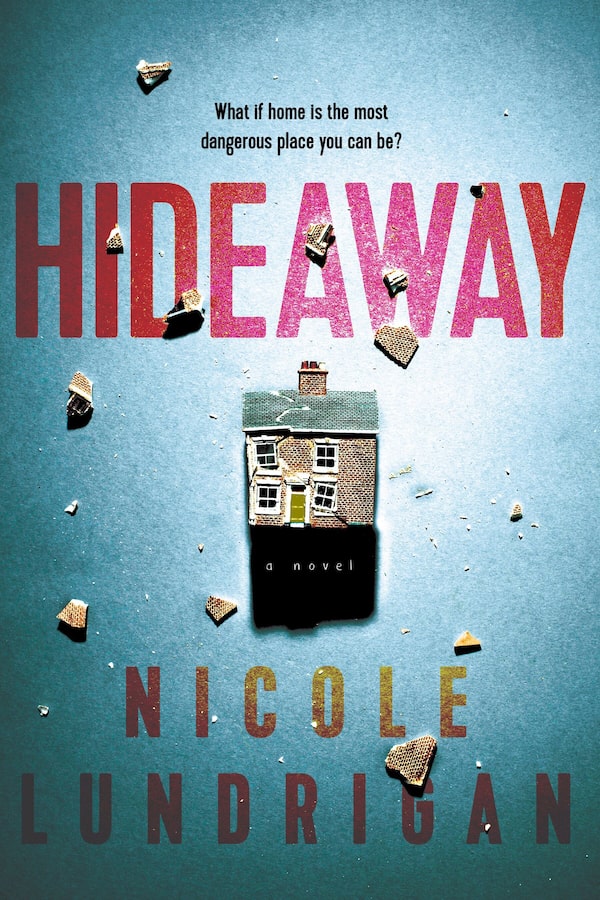
Handout
Hideaway, by Nicole Lundrigan, Viking Canada, 336 pages
I started this excellent novel by Nicole Lundrigan anticipating a classic thriller. Instead, I found myself caught up in a terrific psychological suspense story hinging on the spellbinding character of Gloria, the mom from hell.
They seem like the perfect suburban family: Telly, the dad; son Rowan; cute daughter Maisy; and Gloria, the perfect mother. But under the surface, all is beginning to crack. First, Telly leaves, escapes really, leaving the children to Gloria’s wrath. Rowan seeks solace in the woods near his house, where he escapes when he can. There he encounters Carl, a homeless man who listens to his problems and offers advice on surviving a terrible childhood. But there’s no escaping Gloria. She wants Telly back. She can’t stop planning and she can’t stop abusing her children. No one is hit, not one is scalded, but everyone is damaged psychologically and Maisy, small and vulnerable, is in the most danger. Just when you think you have it all figured out, Lundrigan’s plot swerves. This book has to be saved for a binge read.
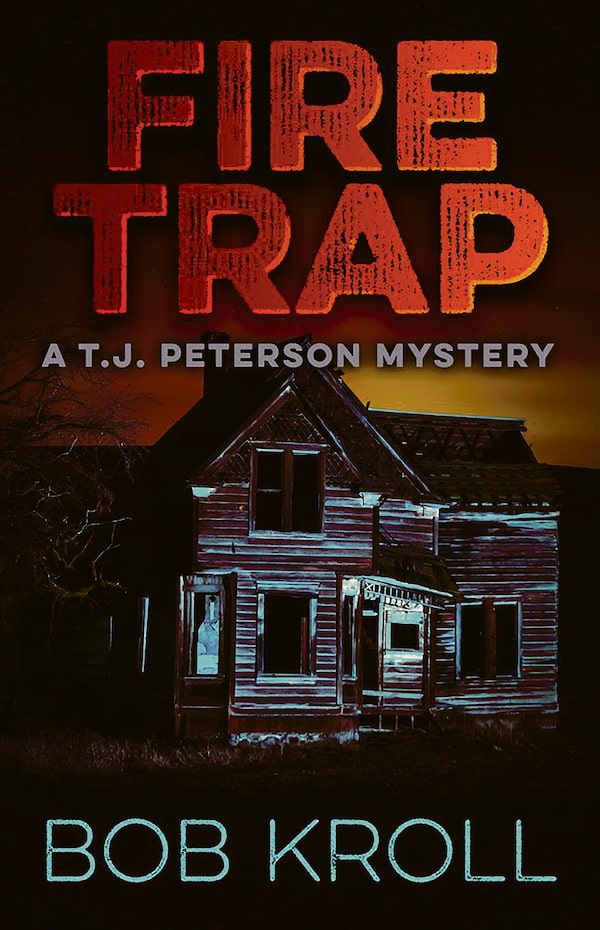
Handout
Fire Trap, by Bob Kroll, ECW Press, 280 pages
Bob Kroll says this is the end of the T.J. Peterson trilogy. That’s a shame because I’ve really grown to like the tough Halifax copper with his dense, psychological plot lines. That said, Kroll is taking him out with a very, very big bang.
The story opens, appropriately, in a corn maze. It’s autumn in Halifax and T.J. Peterson, lately of the police force, now unemployed, is wandering with his lover, Patty, in search of something. Peterson is distracted, fretting over photos of the filthy dumps his runaway daughter sends to let him know how she’s alive. Guilt, mixed with post-traumatic stress disorder send Peterson to the pumpkin bin in search of a fine specimen. When Patty smashes a pumpkin at his feet, he knows the relationship is over.
What’s a desperate father to do? Go in search of a daughter, who doesn’t want to be found ... yet. A text arrives from another young woman who is being tortured. Peterson heads out and finds himself deep in the darkest pits of the dark web. Kroll throws every plot piece into this story, but somehow it all works out. If you like urban grit and slick action, you won’t want to miss this one. If you haven’t read the other two, it’s best to read all three in order.
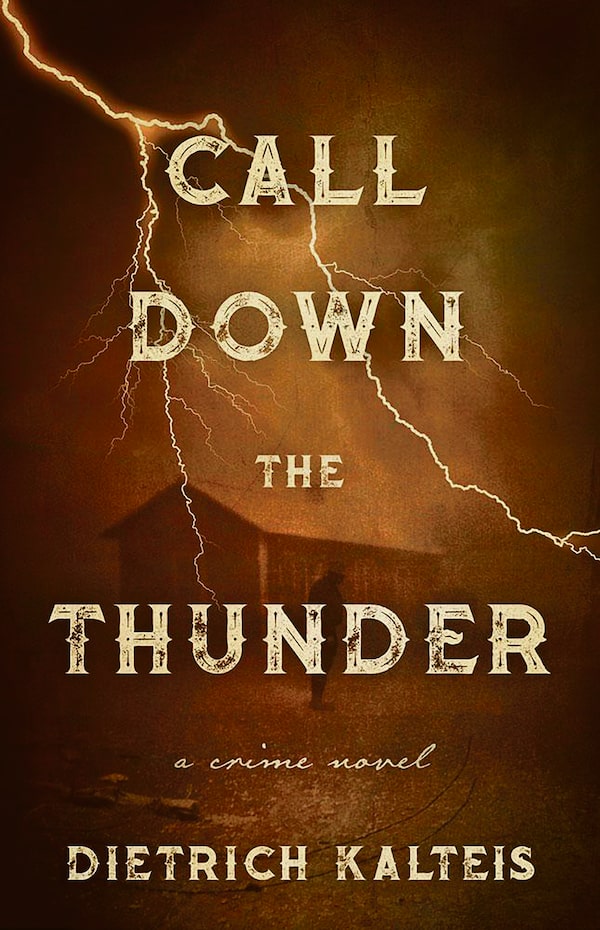
Handout
Call Down The Thunder, by Dietrich Kalteis, ECW Press, 336 pages
Call Down the Thunder, written by the author of Triggerfish and Ride the Lightning, isn’t a classic crime novel. What it really is, is a caper novel about Kansas during the Dirty Thirties, and as a historical novel, it’s a beauty.
Sonny and Clara Meyers are struggling to hang onto their scraggy Kansas farm in the midst of a seemingly endless drought. Clara is ready to give up and head to the promised land of California, but Sonny is intent on hanging on. Eventually, with the banks circling like vultures, Clara decides to take off, driving Sonny’s only truck.
At this point, Sonny is faced with ruin. Lo and behold, Clara returns with a man who claims to be a rain maker. Will the clouds finally lift?
Kalteis’s evocation of the desperation of the farmers and the misery of poverty are where his real writing talents lie, but Sonny and Clara are a fine pair of characters with lots of spunk, and they work well in an excellent story that has lots of old fashioned gumption. Not a whodunit, but a fine tale well written.
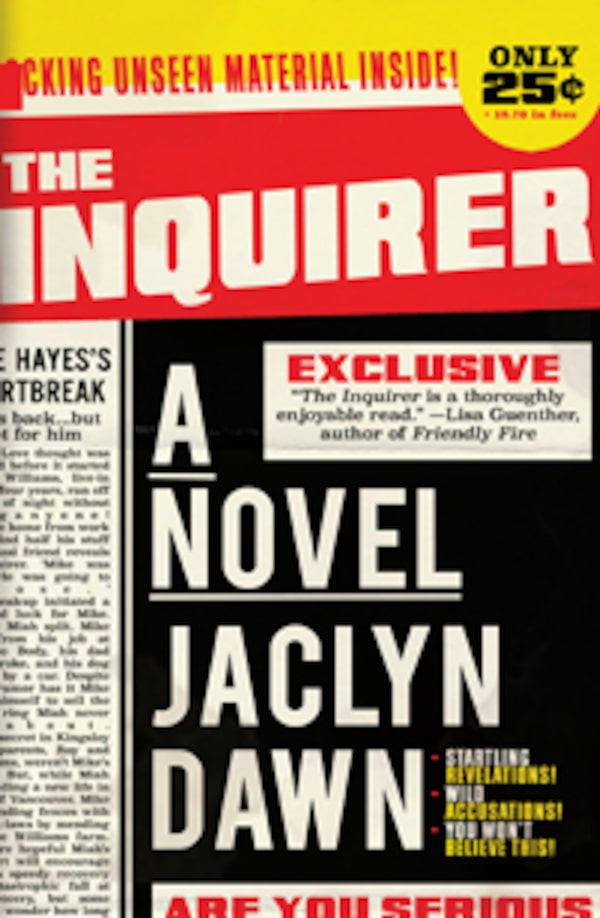
Handout
The Inquirer, by Jaclyn Dawn, NeWest Press, 248 pages
The Inquirer is a very clever debut by Albertan Jaclyn Dawn. Set in the province’s ranch land, it’s a classic tale of buried secrets coming to light with awful consequences.
Amiah Williams fled her rural hometown of Kingsley, Alta., for college in Vancouver, when her romance with the local hero foundered. She’s let plenty of space flow since then, but when her father is seriously injured in an accident, she has to come home to help with the ranch. She’s hardly unpacked when the Inquirer, a local anonymous-gossip tabloid, publishes a nasty article about her and her return, forcing Amiah to re-examine everything around her.
Dawn is most comfortable with a good plot and least adept at the rather dull romance lines. But this is an excellent beginning for a new writer, with a good eye for detail and intriguing plots.
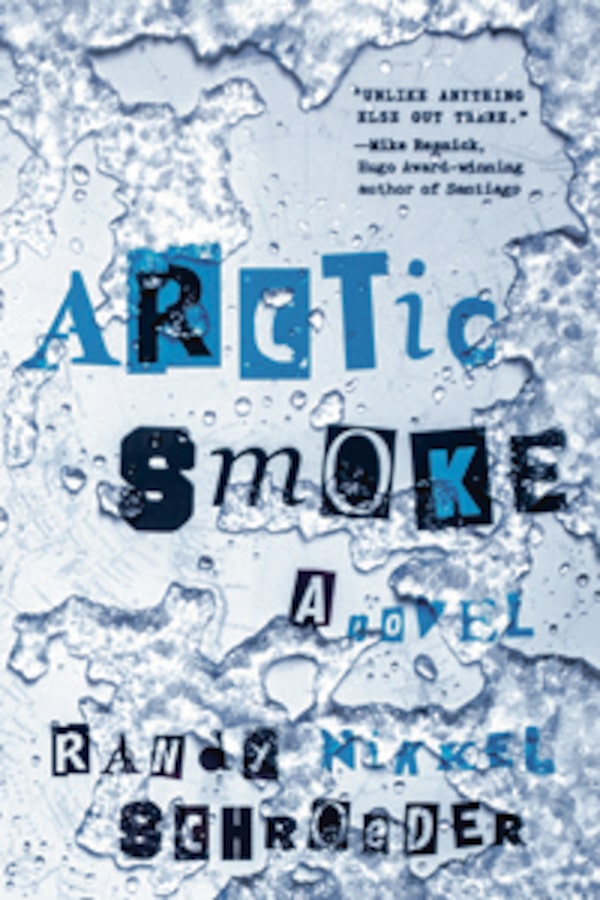
Arctic Smoke, by Randy Nikkel Schroeder, NeWest, 286 pages
There is an interesting tale buried in this overwritten first novel by Calgary musician/writer Randy Nikkel Schroeder. The basic story about an aging punk rocker in the high arctic has promise. It’s one of those “he doesn’t know what he knows, and the men after him think he does know.” Here, the hounds on his heels are CSIS.
The central character, Lor Kowalski, is unsure of his own sanity. He’s hallucinating, remembering bits of something, but is it real or just some mental blip? What has caused this? Drugs? That’s the usual musician’s complaint, but not Lor. Circumstances force him to rejoin his old band and resume a life he thought was ended to go on a mysterious tour of the high arctic. That’s where the chase begins.
The major problems here are simply too much writing, far too much information and a failed touch of magic realism. We do not need to know that Lor can strum “one quick note, one spry triad, a ginger strum, a thrum, a dash – brittle chords stacking til they snapped and fell like dust to cold tile.” Pretty, possibly, when heard, but not much to carry a story forward.

Handout
Your Life Is Mine, by Nathan Ripley, Simon & Schuster, 288 pages
Nathan Ripley is the nom de plume of Toronto author Naben Ruthnum and, as Ripley, he’s developing quite a following. His first mystery, Find You in the Dark, was excellent and this follow-up is even better.
Twenty years ago, Blanche Potter was the witness to her father Chuck Varner’s shooting spree massacre/suicide. Chuck had been the leader of a survivalist cult and his followers revered him as a martyr/saint. Not Blanche. She left her mother Chrissy behind as soon as she could. But the past returns and Chrissy is murdered in her own home. Is this some new horror come to town? Or are the old sins of the father coming back?
Ripley does a fine job with the plot, keeping the pacing and suspense moving. But it’s the characters that make us keep reading. Just what did happen all those years ago and why? This is a terrific weekend book.
Expand your mind and build your reading list with the Books newsletter. Sign up today.